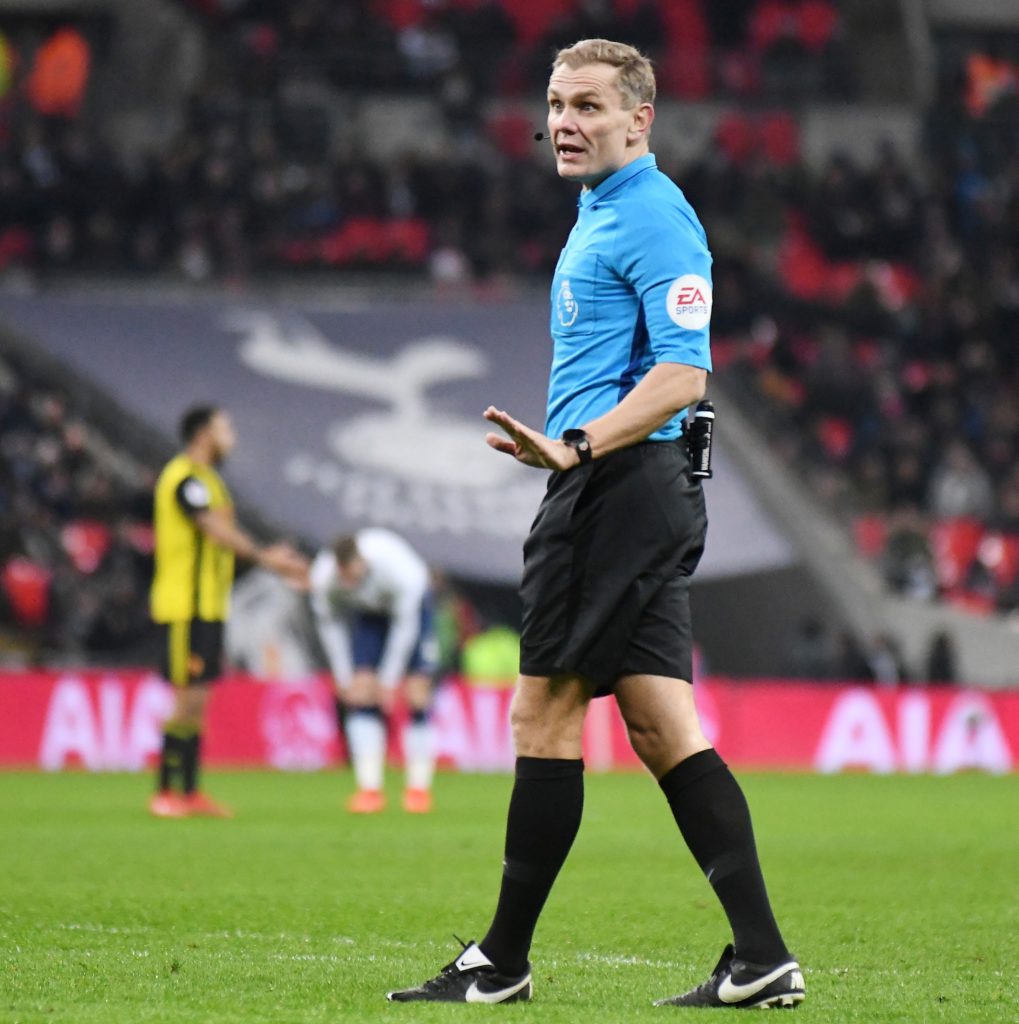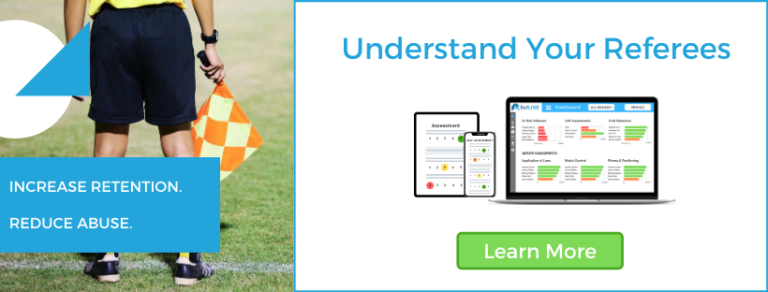Do you achieve a high enough intensity during your pre-match routine to perform at your best from the moment you blow the first whistle? Many referees underperform in the opening exchanges of their games because are yet to reach the intensity of the fixture.
Why is your level of intensity important to your performance?
When you arrive at the venue prepared statistically and you follow that up by warming up with a high level of intensity, you will focus better right from the first second of the match. This results in a better overall performance. If you’re not focused at the start of the game, you will have to address your intensity level whilst concentrating on the game.
However, not all officials need to perform with high intensity. Some referees perform better with a medium or low level intensity.
To begin with, the higher your level of intensity, the more likely it is that you’re going to be able to focus better during the game. When your focus is improved, your performances will go in the same direction. To put it simply, intensity also brings with it focus, which is going to allow you to achieve your optimal level of performance. Some referees perform better with a very high level of intensity whereas other officials need a lower level of intensity, and there’s nothing wrong with that. The most important thing is that you understand where your ideal intensity is to give your optimal level of performance. The best way to identify the right level of intensity for you is to think back to your best performance or your best game. Think where your intensity was at that time, was it at a high, medium or low level, you’re striving to recreate that.
How can you improve your intensity?
There are two main concepts you can buy into in order to improve your intensity. Firstly, increase your physical activity. The purpose of a planned warm up routine is to get you to a level where you’re physically ready for the game, to get you into the right headspace and closer to The Zone.
So how do you do that? Get your heart rate up with some sprints. You may wish to compliment that by doing any necessary stretching at the side of the field of play. You’re looking for something that will get your heart rate into that optimal zone, almost as if you’ve already refereed the first 10 minutes of the game. If you feel like you’ve already had 10 minutes where your heart rate is in that optimal functioning zone, you’ll be able to focus better from the real first whistle.
Alternatively, you could look to set a challenge for yourself. Almost like a game within the game. Officials need to be challenged, and sometimes unfortunately the game you’re refereeing may not be stimulating you so you’re unable to reach the intensity level required to reach your optimal performance level. If you don’t feel challenged at all your intensity will not be where it needs to be.
What can you do? Look to begin each game by setting yourself a challenge, such as to make sure you get the next two decisions right and reset after each set of decisions. Another concept you could buy into is to make sure that you occupy certain positions at key points during the game, such as set pieces. If you have struggled with your movement and viewing points then consider going to the touchlines and by-lines to be sure of your decisions and to better identify foul play. If you have had challenges with your match control you may wish to consider initiating conversations with players to control their future conduct within the game. You may wish to also consider increasing the tone of your whistle, which id your voice on the pitch, this will alert spectators, club officials and players that your profile has been raised and you’re in control.
Whatever you decide to do, set a challenge or an objective to help you get mentally locked into your games. Physical activation and getting mentally locked in is going to help you with your intensity, which in turn, will help you achieve grater match control and to deliver the game in the safest, most enjoyable way.
At The Third Team I work individually and in collaboration with different professionals where I have developed workshops associated with Resilience and Mental Toughness Development to help referees. The workshops are interactive, where referees are encouraged to open up and share their experiences to help each other.
Feel free to contact me if you’d like to know more about my workshops and how I could help you or your officials.
Best Wishes,

Nathan Sherratt
Referee Educator & Managing Director of The Third Team

Nathan Sherratt
Nathan Sherratt, Referee Educator, Resilience Trainer and Managing Director of The Third Team. A Mental Toughness Practitioner based in County Durham, North East England.


